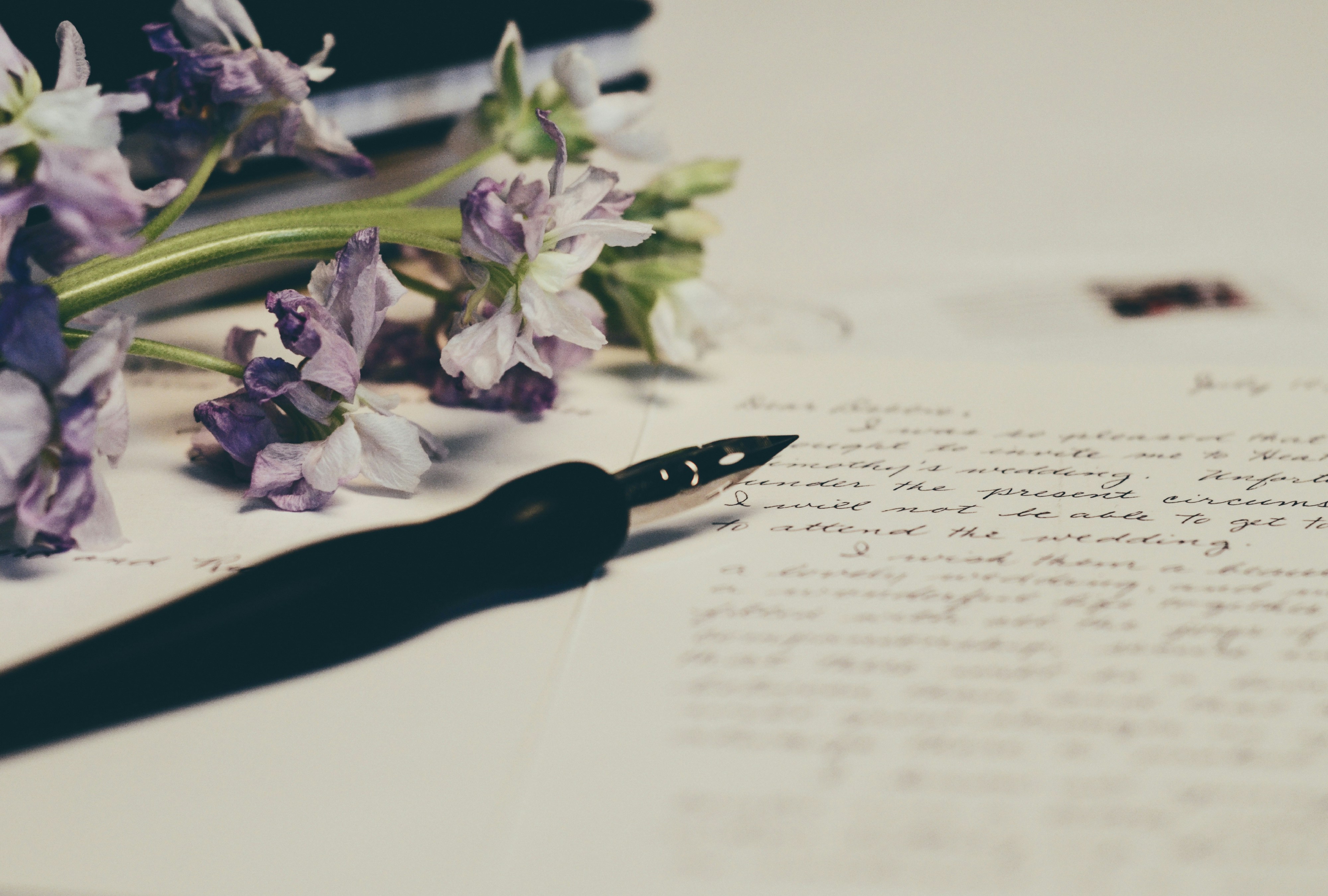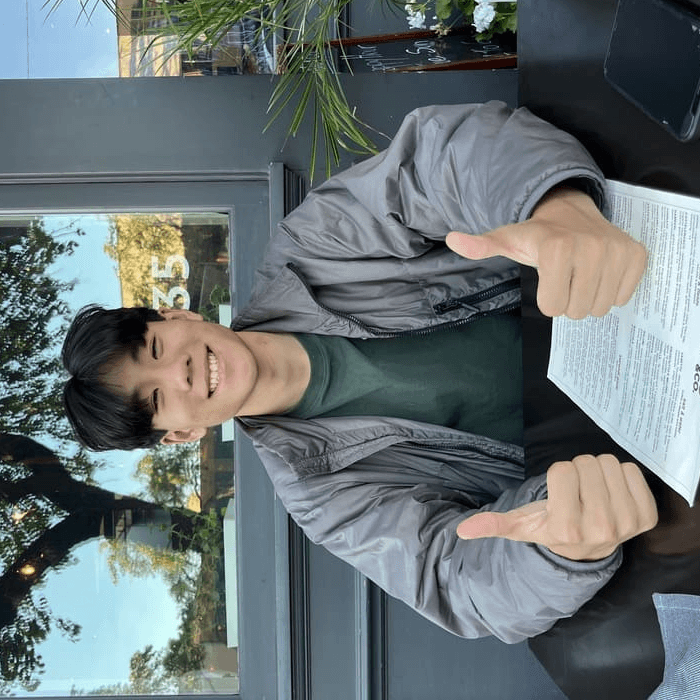< Back
How To Write A Personal Essay For Your College Applications
Declan Gessel
May 3, 2024
If you're looking to dive into how to write an essay, you're in the right place. Whether you're new to personal essays or looking to elevate your existing style, understanding how to write an essay can improve your skills and make your writing more engaging overall. With the right skill set, you can write a personal essay that captivates your audience and tells a compelling story.
Table of Contents
Develop a Strong Personal Thesis Statement In 6 Simple Steps
Bonus Tips For Writing A Stellar Personal Essay For Your College Applications
Never Worry About How To Write A Personal Essay With Jotbot: Start Writing for Free Today
What Is A Personal Essay?

Personal essays are a genre of writing that allows students to share their unique experiences, thoughts, and insights. This type of essay does not have to follow a specific format but should highlight the writer's voice, personality, and thoughts.
When writing a personal essay for a college application, students can explore any aspect of their life, from their time spent playing a sport to their relationships, emotions, or beliefs. The goal is to show admission officers a side of the applicant that they can't see from test scores or grades.
Purpose of Personal Essays
The main goal of personal essays in college applications is to give admission officers a sense of the writer's personality and help them get a better understanding of the person behind the application. This type of essay allows students to showcase their individuality, creativity, and unique perspective.
Students can talk about their likes and dislikes, their accomplishments, or challenges they have overcome. The goal is to create a narrative that the reader can connect with and enjoy.
Key Characteristics of Personal Essays
When writing a personal essay for a college application, there are a few key characteristics to keep in mind:
Non-fiction and truthful
Personal essays are non-fiction, which means they tell a true story. Admission officers are looking for authenticity and honesty in the essays they read.
Focus on a specific experience, theme, or idea
Personal essays should focus on a specific aspect of the writer's life or experiences. This could be a single event, a relationship, a belief, or a particular moment that changed the writer's life.
Engaging and reveals something unique about the applicant
Personal essays should be engaging and well-written, drawing the reader in and keeping them interested. They should also reveal something unique or interesting about the applicant that admissions officers wouldn't know from the rest of the application.
Related Reading
• Persuasive Essay
• Argumentative Essay
• Essay Format
• Expository Essay
• Essay Outline
• How To Write A Conclusion For An Essay
• Narrative Essay
• Transition Sentences
• Rhetorical Analysis Essay
How To Brainstorm A Compelling Personal Essay Topic

Think about the challenges you've overcome, achievements you're proud of, or unique experiences that shaped you. Consider what drives you or what skills or qualities you want to highlight. In addition, reflect on your goals and how your experiences relate to your academic and future aspirations. All of these reflections can help you identify interesting and unique topics for your personal essay.
Crafting a Narrative
Seek out specific events or stories that reveal something about who you are. Can you develop a compelling narrative around a particular experience or moment in your life? Crafting a story can help bring your personal essay to life and engage the reader.
Utilizing Prompts
Many colleges provide specific prompts for personal essays. These prompts can serve as helpful guides for your brainstorming process. You can use the prompt as a starting point and then infuse your unique voice and experiences into your essay. Remember to stay true to your own story and perspective.
Selecting a Strong Topic
When brainstorming for a personal essay, think about whether your chosen topic has the potential to develop a clear and interesting thesis. Does it showcase your individuality and writing skills effectively? Choosing a topic with these qualities can make your personal essay compelling and memorable.
Related Reading
• Words To Start A Paragraph
• Essay Structure
• Types Of Essays
• Synthesis Essay
• Descriptive Essay
• How To Write A Narrative Essay
• How To Write A Synthesis Essay
• How To Start Off An Essay
• Write Me A Paragraph
• How To Write An Analytical Essay
Develop a Strong Personal Thesis Statement In 6 Simple Steps

When it comes to writing a personal essay, a strong thesis statement is like a minimap for your readers. It gives them a clear idea of what your essay is about and what main point you'll be arguing. Crafting a powerful thesis needs to be a priority when writing your essay. Let me break down how to create a strong thesis statement for your personal essay.
Understand the Purpose of Your Thesis
Your thesis is the heart of your essay. It is the most important sentence that explains what your essay will show about you. Think of it as a promise to your readers that you will explore a specific idea about yourself and your experiences.
Break Down Your Brainstorming
Start by recalling the topic you've chosen for your essay. What experience, passion, or value are you focusing on? Dig deeper to identify the specific point you want to make about this topic in relation to yourself.
Craft Your Thesis
When crafting your thesis, simplicity is key. Aim for a clear and concise sentence that is easy to understand. Use your own words and avoid overly complicated language. Make sure to incorporate the "So What?" factor by explaining why the experience or value you've chosen matters and how it reflects on you.
The "Formula"
While not a strict rule, a common thesis structure can be helpful. Start by briefly stating the experience or topic you'll discuss. Following this, explain how this experience relates to you and what it reveals about you.
Examples for Clarity
To help you understand better, let's consider an example. Instead of saying, "I volunteered at an animal shelter," you could craft a thesis like, "Volunteering at the animal shelter not only fostered my compassion for animals but also helped me discover my leadership skills through caring for the rescued pets."
Revise and Refine
After crafting your thesis, read it out loud. Make sure it flows smoothly and makes sense. Ensure that your thesis accurately represents your chosen topic and its connection to you.
Write smarter, not harder with Jotbot
Jotbot is your personal document assistant. Jotbot does AI note-taking, AI video summarizing, AI citation/source finding, it writes AI outlines for essays, and even writes entire essays with Jotbot’s AI essay writer.
Join 500,000+ writers, students, teams, and researchers around the world to write more, write better, and write faster with Jotbot. Write smarter, not harder with Jotbot. Start writing for free with Jotbot today — sign in with Google and get started in seconds.
How To Write A Personal Essay With Good Structure

One of the most important aspects of writing a personal essay is the structure. A well-structured essay ensures that your readers stay engaged and focused. It makes your message clear and easily understandable. An essay without structure can be confusing, difficult to read, and can cause the reader to lose interest quickly.
With a clear and well-organized structure, you will be able to present your thoughts and ideas in a logical and coherent way. This will make it easier for your readers to follow your arguments and to understand your message.
The Basic Essay Structure
A personal essay typically consists of three main parts: an introduction, body paragraphs, and a conclusion. The introduction is where you introduce your topic and present your thesis statement. The body is where you develop your argument and present your evidence. The conclusion is where you summarize your main points and leave a lasting impression on the reader.
Crafting a Captivating Introduction
To grab the reader's attention right from the start, it's essential to use a strong opening hook. This can be a question, a surprising fact, or a personal anecdote. The purpose of the introduction is to introduce your topic and present your thesis statement.
The thesis statement is the main idea of your essay - it is the central point that you will be arguing throughout your essay. Crafting a strong and clear thesis statement is crucial for your essay's overall success.
Building Strong Body Paragraphs
Each body paragraph should focus on a single point that supports your thesis. Start each paragraph with a topic sentence that introduces the main idea of the paragraph. Then, use evidence such as examples, stories, or details to illustrate your points.
Evidence makes your arguments stronger and more convincing. To ensure a smooth flow between paragraphs, use transitions such as "furthermore," "in addition," and "however." This helps to connect your ideas and make your essay more cohesive.
Writing a Powerful Conclusion
In conclusion, summarize your main points and leave a lasting impression on the reader. You can restate your thesis statement and briefly recap the main points of your essay. You can also include a call to action or final thought, encouraging the reader to think about the issue further or take some kind of action. This will leave the reader with a sense of closure and a lasting impact.
Writing Guidelines
Incorporate these guidelines into your writing to create a compelling and engaging personal essay. A well-structured essay keeps your readers engaged and your message clear. In the introduction, you grab the reader's attention with a strong opening hook. Each body paragraph should focus on a single point that supports your thesis, with evidence to illustrate your points.
Use transitions between paragraphs for a smooth flow. In conclusion, summarize your main points and leave a lasting impression on the reader. An optional call to action or final thought can encourage the reader to take further action or think more deeply about the topic.
Bonus Tips For Writing A Stellar Personal Essay For Your College Applications

When writing a personal essay, it is crucial to infuse your piece with your unique voice and personality. This gives the reader a deeper insight into who you are as an individual. The essay should sound like you – not a generic, impersonal piece of writing. Avoid using overly formal language or clichés; strive for a conversational tone that will engage the reader.
Proofreading and Editing
Proofreading is a vital step in the writing process. Grammar, spelling, and typo errors can detract from the overall quality of your essay. It is wise to have someone else review your essay for clarity and flow. A fresh pair of eyes can catch mistakes that you may have missed. Good editing can often be the difference between a good and an exceptional essay.
Formatting Considerations
Colleges may have specific formatting requirements for essays. Ensure you adhere to these requirements. For instance, the font size, margins, and spacing may be specified. Maintaining a uniform and professional format is essential. This shows your attention to detail and will give your essay a polished appearance.
Common College Essay Formats
MLA, APA, and Chicago formats are commonly used for college essays. Familiarize yourself with these formats and adapt your essay accordingly. This demonstrates your ability to follow guidelines and shows respect for the institution you are applying to. The specifics of these formats may differ, so it is wise to be well-versed in each.
Following College Guidelines
Each college may have its own unique formatting requirements for personal essays. It is essential to check with the colleges you are applying to and tailor your essay according to their guidelines. Be aware of word count limits, font sizes, and other requirements that colleges may specify.
The Final Touches
A compelling title can draw the reader in and set the tone for your essay. Ensure your title is relevant and captures the essence of your essay. Leaving a lasting impression on the reader is essential. Conclude your essay with a strong and memorable message. This will linger with the reader long after they finish reading your piece.
Never Worry About How To Write A Personal Essay With Jotbot: Start Writing for Free Today
Jotbot is an invaluable tool for writers looking to streamline their note-taking process. With Jotbot's AI note-taking capabilities, users can quickly jot down ideas, quotes, and key points from various sources, ensuring they have all the necessary information at their fingertips when it comes time to write.
This feature is especially helpful for students working on research papers, as it helps organize thoughts and references in one convenient location.
Streamlining Video Learning
One of Jotbot’s standout features is its AI video summarizing tool. This tool is great for students or researchers who need to quickly brush up on a concept or idea but don't have time to watch an entire video. Jotbot's AI video summarizer condenses content into bite-sized pieces, making it easy to digest and reference later.
Effortless Sourcing and Citation
Another impressive feature of Jotbot is its AI citation and source finder. This tool saves hours of research time by locating sources and generating citations automatically. Users can rest assured that they are properly crediting their sources and building a strong foundation for their own work.
Mastering Essay Structure
One of the most useful features of Jotbot is its ability to generate AI outlines for essays. These outlines help users organize their thoughts and ensure they are covering all necessary points in their writing. This tool is especially valuable for students who struggle with the essay-writing process or who need guidance in creating a strong thesis statement.
Revolutionizing Writing with Jotbot's AI Essay Writer
Jotbot's AI essay writer is a game-changer for anyone who struggles with writing. This feature generates well-structured essays based on the user's prompts and parameters, saving hours of writing time and producing high-quality content every time.
With Jotbot's AI essay writer, users can focus on refining their ideas and perfecting their arguments rather than getting bogged down in the writing process.
Your Ultimate Writing Companion
Jotbot is an essential tool for any writer looking to boost productivity, improve writing quality, and save time on research and writing. With Jotbot, writing smarter, not harder, is within reach—so why not start today and see the difference for yourself?
Related Reading
• Critical Analysis Essay
• Chat Gpt Essay Writer
• How To Write An Outline For An Essay
• What Makes A Good Thesis Statement
• Essay Writing Tools
• How To Write A 5 Paragraph Essay
• How To Write A Rhetorical Analysis Essay
• First Person Essay
• How To Write A Header For An Essay
• Memoir Essay
• Formula For A Thesis Statement
Write more, better, faster.
Your personal AI document assistant












